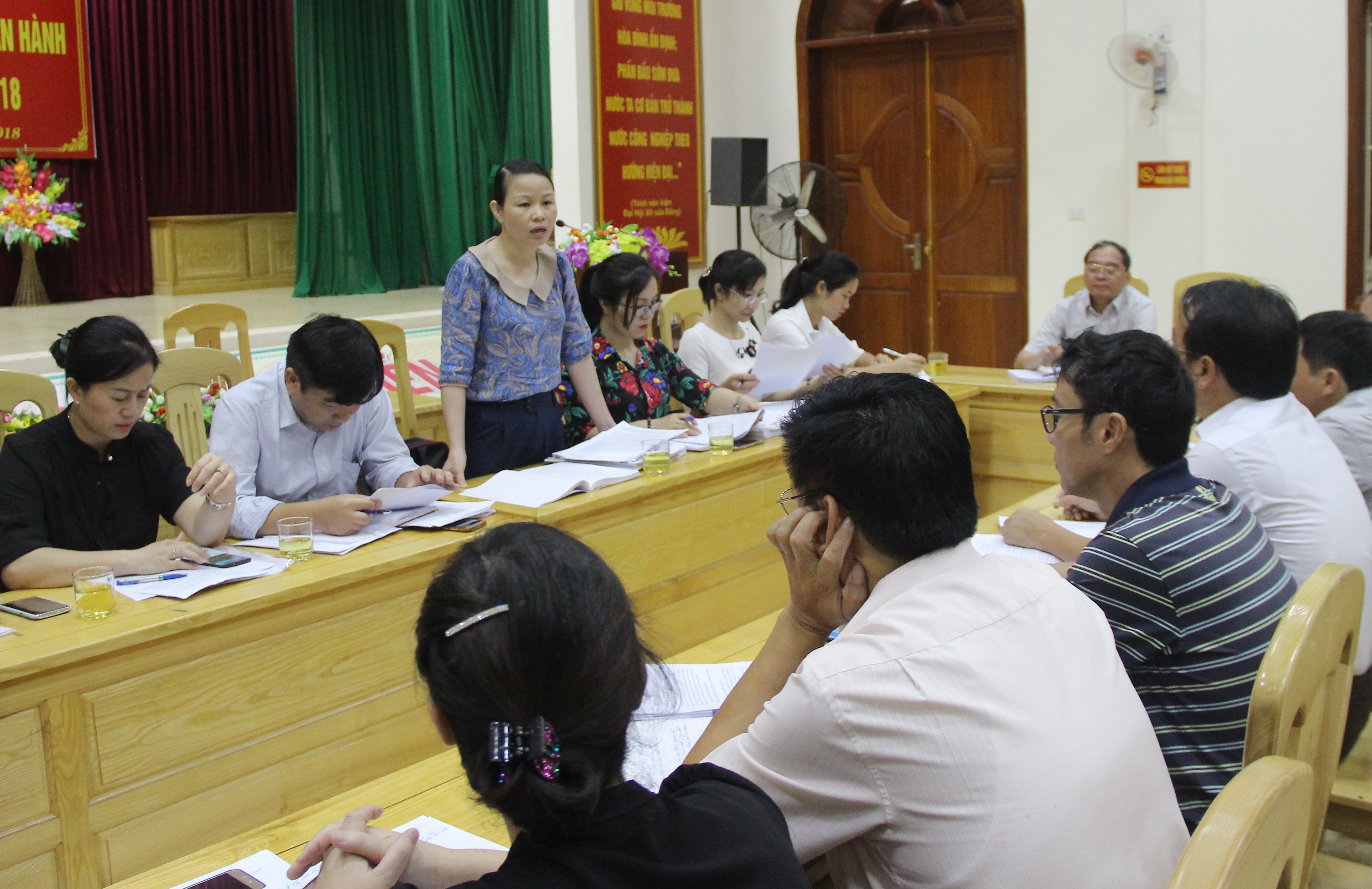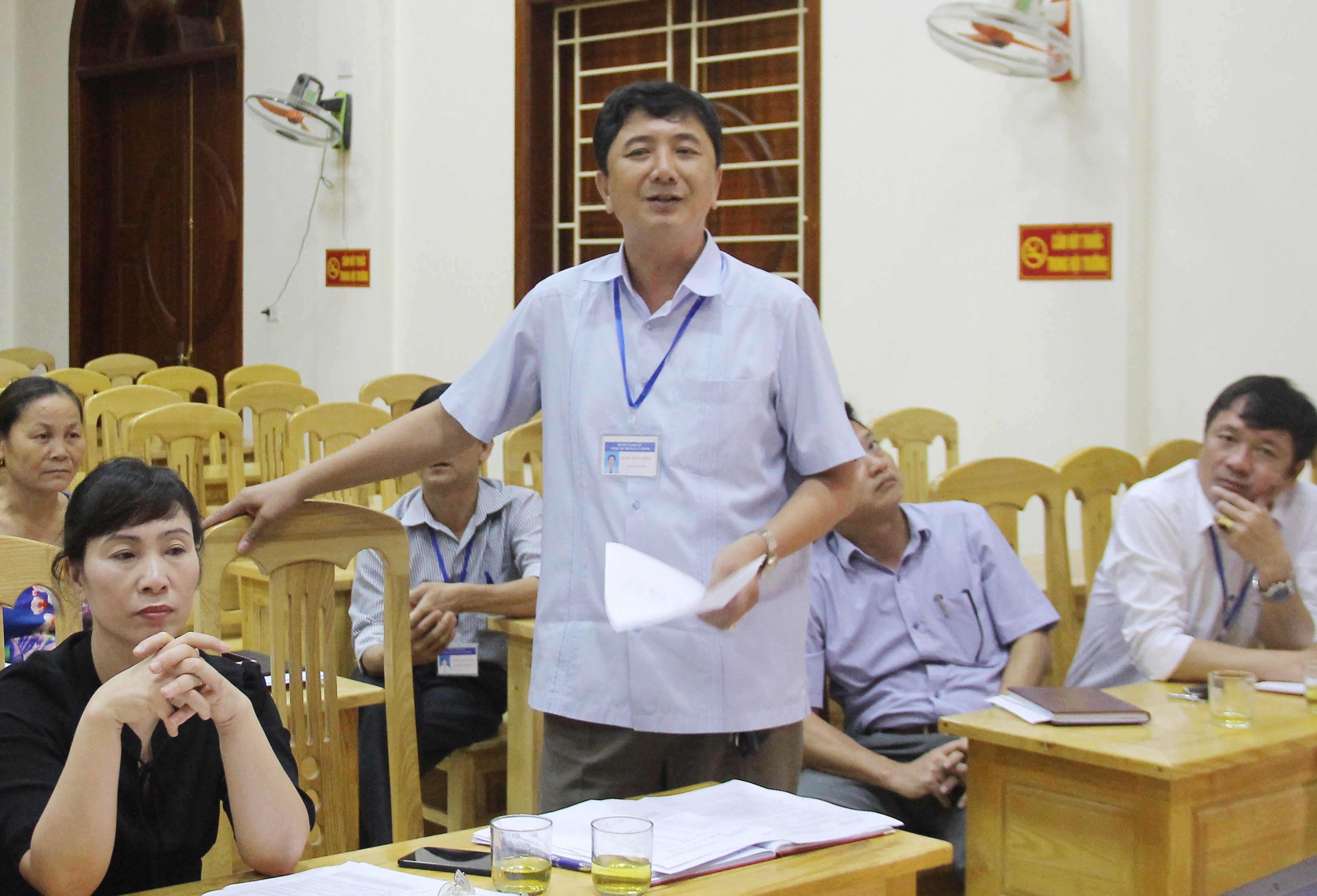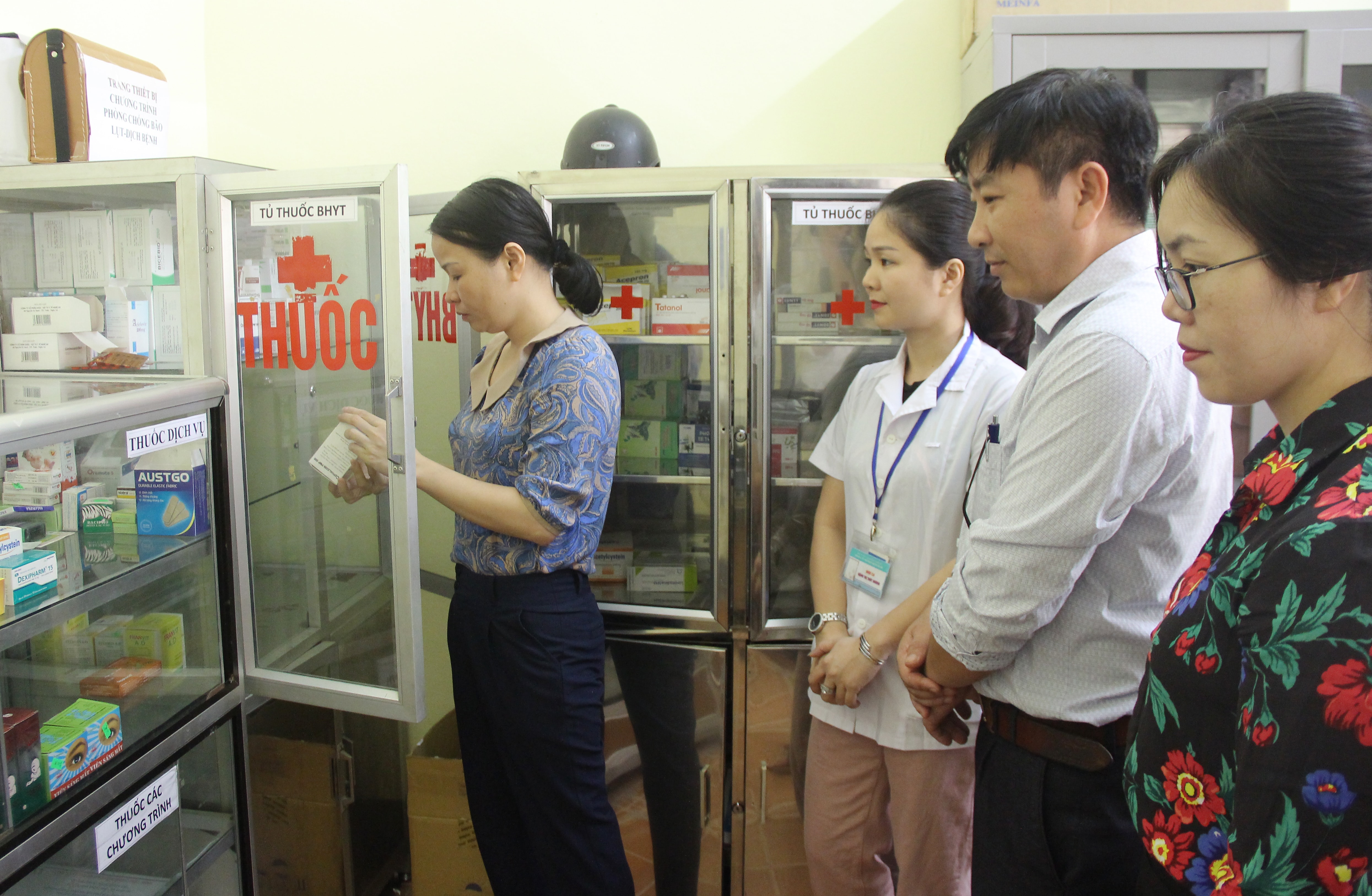Clarifying the reasons for the decrease in poor households and the increase in health insurance cards for the poor
(Baonghean.vn) - This is the content raised at the working session of the Provincial People's Council's Culture - Social Committee with the People's Committee of Quan Hanh town (Nghi Loc district) according to the program of monitoring the implementation of policies and laws on health insurance.
 |
| Ms. Nguyen Thi Lan - Deputy Head of the Culture - Social Committee, Provincial People's Council, Head of the monitoring delegation spoke at the meeting. Photo: Minh Chi |
According to the report of the People's Committee of Quan Hanh town, the rate of participation in health insurance in the area increases every year. If in 2015, the participation rate was only 60.3%, now it has reached 87.4%, equivalent to 5,469 cards/6,271 population. In particular, the group participating in health insurance by household increased from 628 people (in 2015) to 1,079 people.
However, in addition to the attention of leaders and the implementation of policies and laws on health insurance, this work is also facing some difficulties and limitations. It is notable that the propaganda and creation of changes in people's awareness of health insurance in business households, traders, and temporary residents are still difficult, leading to limited mobilization of this group to participate in health insurance.
Incorrect information in card issuance still occurs and the issuance and exchange process is inadequate.
 |
| Chairman of Quan Hanh Town People's Committee Dang Khac Binh said that although the number of poor households has decreased, the number of people in poor households has increased, leading to an increase in health insurance cards for the poor. Photo: Minh Chi |
At the meeting, based on a survey of the town's Health Station, school health rooms at a number of schools in the area and listening to the town's report; members of the Provincial People's Council's monitoring delegation raised many issues.
That is why the number of poor households in the area has decreased, but the number of cards for the poor in the area has increased; the situation of incorrect information on health insurance cards has been going on for a long time but has not been resolved; clarifying which stage is wrong; is the list making and approval of policy beneficiaries, the poor, and near-poor timely?
Deputy Head of the Department of Culture and Society Nguyen Thi Lan expressed concern that although the town's medical station has a fairly synchronous investment in facilities and equipment and a staff of 5 medical staff, the average number of patients coming to the station is only 5-6 people/day, causing a great waste of facilities and human resources.
The reason for the low number of patients coming to the station is that, in addition to implementing the policy of connecting routes and opening private clinics in the area, according to Dr. Nguyen Thi Thuy - Head of the Medical Station, the station only has 1 doctor to examine patients and when this doctor is absent from the station for meetings or training, patients coming to the station will not be examined and given medicine under the health insurance regime.
On the other hand, due to the disease structure and regulations on medical examination and treatment at the grassroots level, many drugs are not provided and the amount of drugs provided for some diseases is also low, so patients want to go to higher levels.
 |
| The monitoring team inspected the medicine cabinet at Quan Hanh Town Health Station. Photo: Minh Chi |
Mr. Dang Khac Binh - Chairman of the Town People's Committee also explained the issues that the delegation was concerned about, in which although the number of poor households decreased, the population in poor households increased, so the total number of health insurance cards belonging to the poor in the area increased.
Concluding the meeting, Ms. Nguyen Thi Lan requested Quan Hanh town to continue to disseminate the law on health insurance, thereby mobilizing, increasing the rate and moving towards the goal of universal health care. In addition, the town also needs to pay attention to leadership and direction, especially the population data system, ensuring the process of making an accurate list of subjects and taking timely measures to correct errors in information on health insurance cards. It is requested that units that are allocated funds from the health insurance fund serve primary health care for health insurance participants for the right purpose and effectively.
